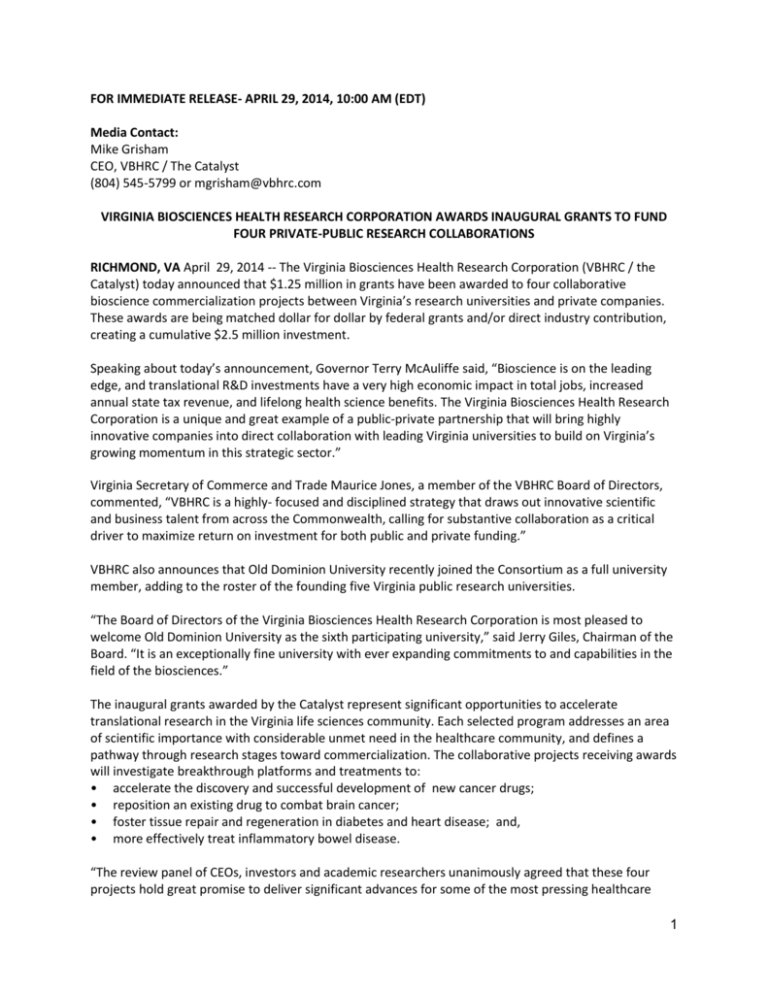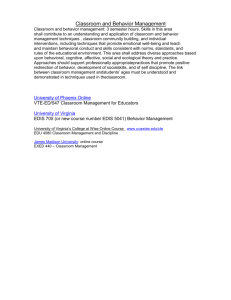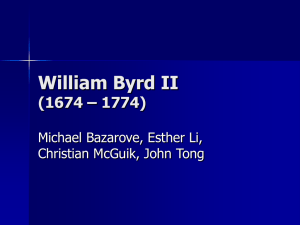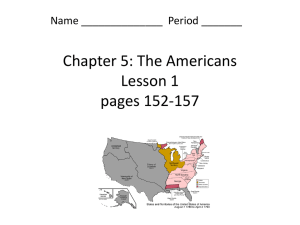CEO, VBHRC / The Catalyst
advertisement

FOR IMMEDIATE RELEASE- APRIL 29, 2014, 10:00 AM (EDT) Media Contact: Mike Grisham CEO, VBHRC / The Catalyst (804) 545-5799 or mgrisham@vbhrc.com VIRGINIA BIOSCIENCES HEALTH RESEARCH CORPORATION AWARDS INAUGURAL GRANTS TO FUND FOUR PRIVATE-PUBLIC RESEARCH COLLABORATIONS RICHMOND, VA April 29, 2014 -- The Virginia Biosciences Health Research Corporation (VBHRC / the Catalyst) today announced that $1.25 million in grants have been awarded to four collaborative bioscience commercialization projects between Virginia’s research universities and private companies. These awards are being matched dollar for dollar by federal grants and/or direct industry contribution, creating a cumulative $2.5 million investment. Speaking about today’s announcement, Governor Terry McAuliffe said, “Bioscience is on the leading edge, and translational R&D investments have a very high economic impact in total jobs, increased annual state tax revenue, and lifelong health science benefits. The Virginia Biosciences Health Research Corporation is a unique and great example of a public-private partnership that will bring highly innovative companies into direct collaboration with leading Virginia universities to build on Virginia’s growing momentum in this strategic sector.” Virginia Secretary of Commerce and Trade Maurice Jones, a member of the VBHRC Board of Directors, commented, “VBHRC is a highly- focused and disciplined strategy that draws out innovative scientific and business talent from across the Commonwealth, calling for substantive collaboration as a critical driver to maximize return on investment for both public and private funding.” VBHRC also announces that Old Dominion University recently joined the Consortium as a full university member, adding to the roster of the founding five Virginia public research universities. “The Board of Directors of the Virginia Biosciences Health Research Corporation is most pleased to welcome Old Dominion University as the sixth participating university,” said Jerry Giles, Chairman of the Board. “It is an exceptionally fine university with ever expanding commitments to and capabilities in the field of the biosciences.” The inaugural grants awarded by the Catalyst represent significant opportunities to accelerate translational research in the Virginia life sciences community. Each selected program addresses an area of scientific importance with considerable unmet need in the healthcare community, and defines a pathway through research stages toward commercialization. The collaborative projects receiving awards will investigate breakthrough platforms and treatments to: • accelerate the discovery and successful development of new cancer drugs; • reposition an existing drug to combat brain cancer; • foster tissue repair and regeneration in diabetes and heart disease; and, • more effectively treat inflammatory bowel disease. “The review panel of CEOs, investors and academic researchers unanimously agreed that these four projects hold great promise to deliver significant advances for some of the most pressing healthcare 1 issues today,” said VBHRC Chief Executive Officer, Mike Grisham. “By encouraging new collaborations between our world-class universities and the private sector in Virginia, we are helping to cultivate the expertise that makes us globally competitive, both now and in the future.” The Catalyst received 25 “Letters of Intent” that resulted in 12 formal applications as part of this initial award, which were reviewed by a 10-member Project Management and Oversight Panel. The VBHRC’s Board of Directors then reviewed the Panel’s recommendations and selected the awardees. "The Catalyst has an exciting mission to advance research into high commercial impact, and these newly funded projects mark an outstanding beginning,” commented Virginia Secretary of Commerce and Trade Maurice Jones. “Investments in the Commonwealth’s world-class research universities, in collaboration with private industry, will not only grow high-paying jobs and economic growth in Virginia in the shortterm, but have the promise to create new treatments or even cures.” “Many of the underlying technologies were developed by Virginia’s research universities, and are now being commercialized by the Commonwealth’s emerging biotech leaders,” added Senator Creigh Deeds (Bath). “These platforms will contribute to Virginia’s growing reputation for biotech excellence, and generate long-term economic benefits, as well as major advances across a range of disease areas.” About the Funded Programs A platform to accelerate the discovery and successful development of new cancer drugs Through collaboration between the University of Virginia, George Mason University and HemoShear, Inc. of Charlottesville, this program will create an investigational platform that closely mimics the biology of human tumors. According to the National Cancer Institute, which is contributing funding to this program, “There is a critical need to improve the accuracy of preclinical drug efficacy screening and testing through the development of [laboratory-based] culture systems that more effectively mimic the [human] environment. Systems to properly recreate the tumor microenvironment are lacking and [are] essential to advance the discovery and development of effective anticancer agents.” While the HemoShear platform will be created initially using a tumor cell line, it will be expanded in the future to replicate the biology of specific cancers using patient primary tumor cells. The program received $450,000 from VBHRC. “Our primary focus at HemoShear is to create a lens into human disease biology that will result in discovery and development of drugs more quickly and cost effectively than today’s methods. Through the VBHRC funding, we look forward to working with our academic partners to advance this program, contributing to human health while reducing risk of failure and increasing confidence in the new therapeutic candidates,” said Jim Powers, CEO of HemoShear. A new mechanism to make existing anti-cancer drugs more effective The University of Virginia, Virginia Commonwealth University and Tau Therapeutics, LLC, have partnered to advance the efforts to reposition the former hypertension drug mibefradil as a potential treatment for glioblastoma, a deadly primary malignant brain tumor that affects 10,000 Americans each year and is resistant to conventional cancer therapies. When added to traditional therapies, a T-type calcium channel inhibitor such as mibefradil may overcome the therapeutic resistance of the solid tumor cancers. The program received a $203,000 grant from VBHRC. 2 “We believe this new technology may help to overcome the therapeutic resistance of glioblastoma by making standard chemotherapy treatments more effective, fulfilling a significant unmet medical need today,” said Tau President and CEO Andy Krouse. “The funding from the Catalyst will allow us to work closely with our university partners to better understand the mechanism by which this compound works on brain tumor cells and to conduct preclinical and clinical studies to bring this treatment to patients in need.” A technology that can foster tissue repair and regeneration in diabetes and heart disease A first-in-class compound has been developed to speed the repair and regeneration of damaged tissue for some of the most prevalent and costly health conditions today. The investigational treatment has shown positive results in Phase 1 and Phase 2 clinical trials evaluating repair of tissue damaged from heart attacks and diabetic foot ulcers. The development program, a joint effort by Virginia Tech, University of Virginia and FirstString Research, Inc., received a $200,000 grant from the Catalyst to advance the drug development program into late-stage clinical studies. “Treatments that can regenerate or repair tissue quickly and effectively have a range of potential applications in medicine today, particularly among diseases such as heart disease and diabetes, which carry a significant burden among a large proportion of the U.S. population,” said Gautam S. Ghatnekar President and CEO of First String. “We look forward to collaborating with our partners, using the Catalyst funding to advance our progress with this investigational treatment toward commercial availability.” A first-in-kind anti-inflammatory treatment for inflammatory bowel disease This collaborative program between Virginia Tech, Virginia Commonwealth University and BioTherapeutics, Inc., of Blacksburg, aims to advance a novel anti-inflammatory compound with a unique mechanism of action into the clinic through a progressive clinical study program. Inflammation is a primary cause of inflammatory bowel disease, a condition that affects more than four million people worldwide, and for which there are limited treatments. Preclinical testing indicates that the compound may be effective with limited toxicity. The program received $400,000 from VBHRC. “Based on a novel anti-inflammatory mechanism of action discovered at Virginia Tech, we believe this new drug candidate may be effective in treating IBD and potentially a range of other conditions linked to inflammation,” said Josep Bassaganya-Riera, President and CEO of Biotherapeutics, Inc. “The funding from the Catalyst will allow us to pursue a clinical trial pathway, with the goal of making this treatment available to millions of people worldwide suffering from these widespread and debilitating disorders.” About Old Dominion University Old Dominion University, located in Norfolk, is a dynamic public research institution that serves its students and enriches the Commonwealth of Virginia, the nation and the world through rigorous academic programs, strategic partnerships, active civic engagement and ground breaking research. ODU’s research teams generate $88 million in annual funding through more than 400 ongoing projects. Supported by grants from NSF, NIH, Department of Energy, and DOD, among others, ODU researchers advance in a variety of bioscience and health fields, including Modeling & Simulation and Bioelectrics. About the Virginia Bioscience Health Research Corporation 3 The Virginia Bioscience Health Research Corporation (VBHRC), also known as the Catalyst, is a state created non-profit corporation whose mission is to improve human health by accelerating translational research through collaborations between Virginia research universities and industry. By creating an environment that makes Virginia a leader in collaborations, innovation and job creation, the VBHRC aims to create stronger working partnerships that lead to greater collaboration and advancement of ideas and technology, from academia to industry and to health delivery systems. VBHRC evaluates new grant applications on an annual basis. Eligible projects should aim to accelerate translation research and commercialization, and require the participation of two or more participating Virginia universities in collaboration with at least one industry partner in the bioscience field, which provides external funding that, matches or exceeds the state award. Letters of intent, applications and awards are accepted and evaluated on a rolling basis, and awards range from $200,000 to $800,000. A guide to the VBHRC solicitation process and a form letter of intent is available here. VBHRC is funded from the Virginia General Assembly’s General Fund and six participating research universities: Eastern Virginia Medical School, George Mason University, Old Dominion University, University of Virginia, Virginia Commonwealth University and Virginia Polytechnic Institute and State University. For more details on each funded program, please contact: A platform to accelerate the discovery and successful development of new cancer drugs HemoShear: Brian Wamhoff, PhD, wamhoff@hemoshear.com 434-872-0196 A new mechanism that makes existing anti-cancer drugs more effective Tau Therapeutics: Andrew Krouse, CEO, krouse@tautherapeutics.com 434-974-6969 A technology that can help regenerate tissue damage suffered by diabetes and ischemic heart disease FirstString Research: Gautam S. Ghatnekar, DVM PhD, ghatnekar@firststringresearch.com 843-860-8372 First-in-kind anti-inflammatory treatment for inflammatory bowel disease BioTherapeutics: Dr. Julian Cooper, COO, jcooper@biotherapeutics.com 540-449-1533 Old Dominion University: H. Rodger Harvey, Ph.D. Interim Vice President for Research Old Dominion University 757-683-6298 rharvey@odu.edu ### 4









